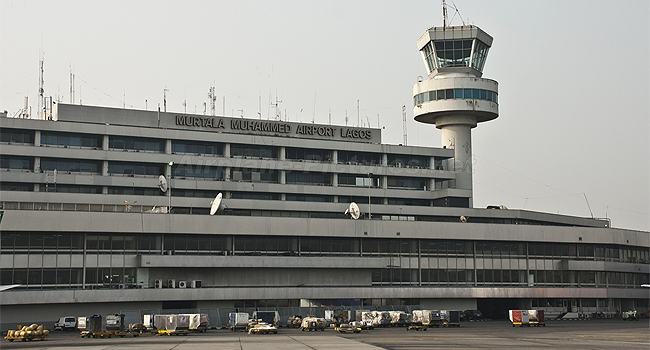By Jeph Ajobaju, Chief Copy Editor
Flagship airports in Lagos, Abuja, Port Harcourt, and Kano are to be concessioned by August for between 20 and 30 years both to rid them of inefficient government involvement and enable them fetch money for the treasury through private hands.
The Nigerian Airspace Management Agency (NAMA) has also acquired two new automated mobile control towers to back up operations at Lagos and Abuja airports.
The Guardian (Nigeria) quoted Aviation Minister Hadi Sirika as confirming the concessioning and that the last phase will be completed between now and July.
The government has been keen to concession all the 22 federal airports since 2016, beginning with those in Lagos, Abuja, Port Harcourt, and Kano so they can function efficiently and profitably.
However, unions are against the plan despite the government’s assurance that workers will not be fired.
The Association of Nigeria Aviation Professionals (ANAP), National Union of Air Transport Employees (NUATE), Air Transport Services Senior Staff Association of Nigeria (ATSSSAN) and National Union of Pensioners (NUP) all wonder what will be the fate of their members when the airports fall into private hands.
The unions faulted the rationale for concessioning viable airports that benefitted from a loan Nigeria obtained from China in 2013. They also want details of the $500 million credit for the four airports, especially the concession plan.
Sirika gave an assurance at the Airport Business Summit and Expo that there will be no job loss during concession that is meant to engage competent hands in the system.
He clarified that it is not necessary to sell public assets but to concession them so they can provide more revenue, saying the proposal will be presented to the Federal Executive Council (FEC) in February 2022 for approval.
All the agreements on concessioning are in the interest of the public, he added.
He disclosed that the proposal, which began in 2015, will be advertised for bidders to show interest, those qualified will be invited for profiling, and the process will end in August.
Evaluated companies have to present a proposal for engagement, Sirika said, adding that there will be dialogue with labour to address all issues and ensure no single worker is laid off.
All ongoing concessions will be allowed to finish their tenure before review, he pledged.
Sirika said there is an arrangement between the Lagos State government and Aviation Ministry to construct a light rail from local airport terminal to the Murtala Mohammed International Airport in Lagos to ease traffic flow between them.
Concessioning detail not disclose
PREMIUM TIMES had reported the concessioning plan on June 3, citing a document sent to it by Aviation Ministry spokesperson, James Odaudu.
“Infrastructure concessions of this nature come with a significant financial obligation which any responsible concessionaire will no doubt be keen to recoup,” the document said.
“To this end, we envisage a minimum of 20 to 30 years for the programme, which may be extended depending on performance and Nigeria’s best interests.
“That said, the duration is not set in stone and will be subject to negotiation and then final approval by the Federal Executive Council.”
Despite having huge potential, the Aviation Ministry said these airports are operating at a low level.
The document noted that the government is starting with the most important assets because profitable of concessioning will give investors the confidence to consider other possibilities in the sector.
Concessioning will cover only non-aeronautic assets of the airports located in the passenger and cargo terminals, the document explained, per PREMIUM TIMES.
This consists of assets from the entry door of the airport to the point of embarking and disembarking from an aircraft to the exit doors.
This space is commonly referred to as the passenger terminal comprises retail spaces, waiting and seating areas, airport and airline lounges, baggage collection, check-in counters as well as administrative offices.
According to PREMIUM TIMES, the document did not explain the financial implications of concessioning, especially what amount will go to the treasury.














